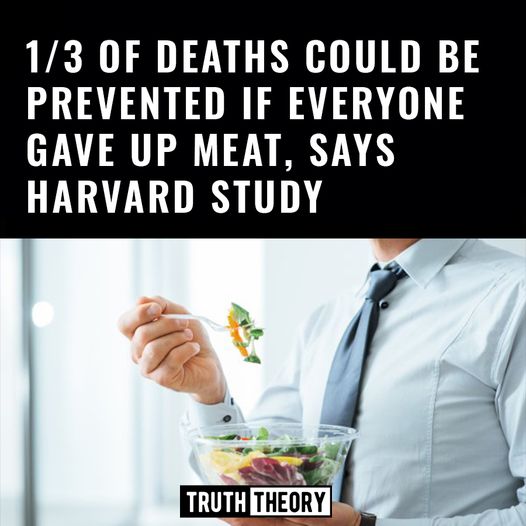Could adopting a vegetarian diet reduce the number of premature deaths worldwide? According to researchers with Harvard University, the answer is a resounding “yes.”
Dr. Walter Willett, a professor epidemiology and nutrition with the university, says the benefits of a plant-based diet is vastly underestimated. This is because he and his colleagues concluded that up to one-third of early deaths — or approximately 200,000 lives each year — could be prevented if everyone were to adopt a vegetarian diet.
Said Willett, at the Unite to Cure Fourth International Vatican Conference in Vatican City: “We have just been doing some calculations looking at the question of how much could we reduce mortality shifting towards a healthy, more plant based diet, not necessarily totally vegan, and our estimates are about one third of deaths could be prevented.”
“That’s not even talking about physical activity or not smoking, and that’s all deaths, not just cancer deaths. That’s probably an underestimate as well as that doesn’t take into account the fact that obesity is important and we control for obesity,” he added. “When we start to look at it we see that healthy diet is related to a lower risk of almost everything that we look at. Perhaps not too surprising because everything in the body is connected by the same underlying processes.”
At the same conference, Professor David Jenkins of the University of Toronto (who is credited with developing the glycemic index), said the benefits of consuming a vegetarian diet have been “undersold.” As The Telegraph reports, Jenkins said human health would improve if a “simian” diet were to be adopted. Unlike the “paleo” diet which cuts carbohydrates but allows meat, the “simian” diet is rich in stems, leaves, vines, and fruit.
After traveling to central Africa to study the feeding habits of gorillas, Jenkins and his colleagues recreated the diet for humans — which amounted to 63 servings of fruits and vegetables in a day. When the unconventional diet was adopted, participants experienced a 35 percent fall in cholesterol in just two weeks.”
Said Jenkins: “That was quite dramatic. We showed that there was no real difference between what we got with the diet and what we got with a statin.”
“We’re saying you’ve got a choice, you can change your diet to therapeutically meaningful change or you can take a statin. Drug or diet,” he added.
Now that researchers with Harvard University recommend adopting a plant-based diet, hopefully the masses will consider adding more fruits, vegetables, leafy greens, nuts, and seeds into their diets.
